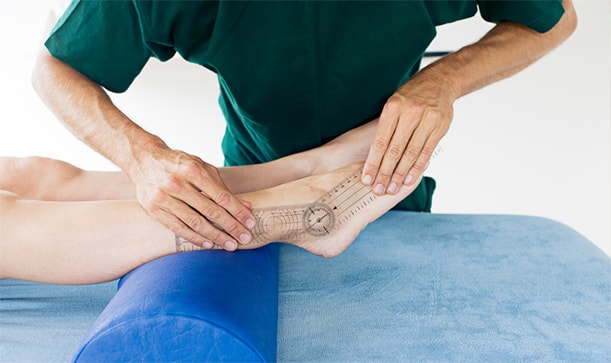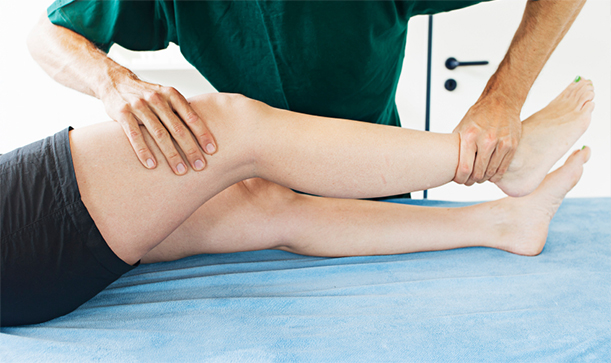CK Physiotherapy
AREAS COVERED
W7, W5, W13, Ealing, West London
57 Elthorne Avenue
Hanwell, W7 2JY
T: 020 8566 4113
M: 079 572 46185
E: info@ckphysio.co.uk
Location / Parking
We are situated in Hanwell, between Boston Manor Road and Northfields Avenue, south of the Uxbridge Road.57 Elthorne Avenue
Hanwell, W7 2JY
There are parking restrictions Mon - Fri 9-10am and 2-3pm. If you need a permit during this time please inform your therapist when you arrive. There are no parking restrictions at other times.
Opening Times
Please phone the number above during working hours to make an appointment. Our reception service will be happy to book your session.
London Underground / Bus Services
London Underground
10 min. walk from Boston Manor Tube Station.
15 min. walk from Northfields Tube Station.
Bus Service
E8, E3, E2, 207, 607, 83
Request Call Back
Our Blog
Managing Pregnancy Discomfort
By: BryanKelly (Psst, View author in Google Plus) Date: Dec 22nd, 2022Pregnancy can be a wonderful time, but it can also be challenging for some women.
The physical changes that a woman's body goes through can be difficult to cope with, and some women may experience discomfort or pain.
It’s important for pregnant women to take care of themselves and seek support from their loved ones and medical professionals when they need it.
For partners of pregnant women, it’s important to do your research so you are best placed to support their pain management.
What are the typical changes in your body during pregnancy?
During pregnancy, a woman's body goes through many changes.
Common physical changes may include:
· Constipation
· Cramps
· Feeling warmer than usual
· Incontinence and more frequent urination
· Changes in your skin and hair
· Headaches
· Swollen ankles and feet
· Tiredness and sleep problems
· Joint pain
The hormones oestrogen and progesterone are also produced in higher quantities during pregnancy.
These hormones help to prepare the body for the growth and development of the baby. But they can also cause a variety of emotional changes, and also influences how the body responds to pain.
An article by theUniversity Of Michigan suggests that elevated levels of oestrogen can actually increase the amount of ‘pain-dampening’ chemicals in the brain. Pregnant women notice the pain less.
This may be seen by some as a blessing.
But pain is a way for the body to signal that there may be a problem that needs to be addressed. Pain is typically a sign that something isn't right and that the body needs to be protected.
This is why it’s important for pregnant women to be mindful of any pain that is being experienced and seek medical advice where appropriate.
This is especially important for any pain felt around the joints. It’s important to look at pain management solutions, but also potentially look at changes you can make to prevent any longer-term damage.
What are the common joint complaints in pregnant women?
Many pregnant women experience joint pain in the second and third trimesters of their pregnancy.
The main reason for this pain is the additional weight that a pregnant woman is carrying with her growing baby.
But hormonal changes also play a part, as they cause relaxation and loosening of the muscles and ligaments that support your joints.
Common symptoms of joint pain include swelling, pain when moving the joint, a dull ongoing ache or feelings of weakness.
The common joint complaints in pregnant women affect the hips, pelvis, knees and lower back.
Hip Joints
It’s perhaps no surprise that hip pain is a common challenge in pregnant women.
Your hip joints play an important part in the stabilisation of your upper body, and they are put under a lot more strain with the additional weight of a growing baby.
Pelvis
Many pregnant women also complain of pain in the front of their pelvis.
For some women, this pain may be mild, but for others, it may evolve intoPelvic Girdle Pain (PGP).
For women suffering from PGP, they may feel pain in their pubic bone and the area between their legs when they are walking or moving up and down the stairs.
It’s important to see a medical professional as soon as possible if you feel you are suffering from PGP, so an appropriate pain management programme can be implemented.
Knees
The knee joints are incredibly important for movement and mobility and help to bear the weight of your body.
During the second and third trimesters of pregnancy, the amount of weight and strain on your knees is greatly increased. So, it’s common for pregnant women to complain of knee pain.
Lower Back
Lumbar pain, or lower back pain, is one of the most commonly reported types of joint pain that pregnant women experience.
The ligaments that support your spinal structure loosen up during pregnancy.
This can lead to your lower spine becoming less stable, which combined with the extra weight that is being carried is the main cause of lower back pain.
If you have any lower back pain during pregnancy, it's important to see your GP as soon as possible. If left untreated, it can lead to more serious problems down the line.
What are the best pain management techniques during pregnancy?
The best pain management techniques during pregnancy will vary depending on the individual and the type of pain that is being experienced.
It’s always important to seek advice from your GP if you’re experiencing any pain during pregnancy.
Common pain management techniques for pregnant women can include:
· Exercise and stretching: Regular exercise and stretching can help to improve joint health and alleviate discomfort during pregnancy. It's important to choose low-impact exercises, such as walking, swimming, or yoga.
· Advice on proper body mechanics: Using good posture and proper body mechanics when moving or lifting can help to support the joints and reduce strain on your body.
· Massage: Massage can help to relieve tension and pain in the joints. Pregnant women can ask their partners or a trained physiotherapist to perform a massage, or there are a variety of self-massage solutions available.
· Seeing a physiotherapist. A trained physiotherapist will conduct an initial assessment and advise a tailored treatment plan to decrease your pain and manage your symptoms.
How can a physiotherapist help with pain management during pregnancy?
A good physiotherapist can help pregnant women with their pain management by providing tailored exercises and stretches that can help to alleviate discomfort in their joints during pregnancy.
A physiotherapist can also provide guidance on how to adjust your movement to provide proper support for your joints. Examples might include using good posture and correct body positioning when moving or lifting.
Additionally, a physiotherapist can provide manual therapy techniques such as massage therapy and spinal manipulation to help relieve tension and pain in the lower back and joints.
By working with a good physiotherapist, they will also help prepare you for life after pregnancy.
After giving birth, it's common for women to face challenges with their pelvic floor muscles.
These muscles are stretched, loosened and weakened during childbirth. This is one of the reasons why temporary incontinence is typical for women after having a child.
Continued physiotherapy and pelvic floor exercises can help strengthen your pelvic floor muscles and can be effective as treatment should you suffer from issues with your pelvic health after pregnancy.
More about CK Physiotherapy
At CK Physiotherapy, we have a team of licenced, chartered physiotherapists operating in the Ealing area.
We specialise in supporting pregnant women with pain management.
If you’re suffering from any joint pain during your pregnancy, and your GP feels like physiotherapy is a suitable solution, our team of experts may be able to help you.
Reach out to our friendly team for an online consultation.
One of our therapists will connect with you to talk about your condition and medical history, arrange an initial assessment, and work with you to create an individualised treatment plan.
Get in touch today.
Further reading (sources)
https://www.physit.co.uk/pain-during-pregnancy/
https://www.actionphysiotherapy.co.uk/treatments/pregnancy-related-pain/
https://painproclinics.com/blog/how-physiotherapy-can-help-manage-pregnancy-pain/
https://www.integrityphysio.com.au/blog/can-pregnancy-cause-joint-pain
https://www.sciencedaily.com/releases/2003/02/030219080552.htm
https://www.sciencedirect.com/science/article/pii/S0091302220300479
https://my.clevelandclinic.org/health/symptoms/21642-round-ligament-pain
https://www.nhs.uk/pregnancy/related-conditions/common-symptoms/pelvic-pain
https://www.urmc.rochester.edu/encyclopedia/content.aspx?contenttypeid=134&contentid=52
https://www.nhs.uk/pregnancy/related-conditions/common-symptoms/common-health-problems/





